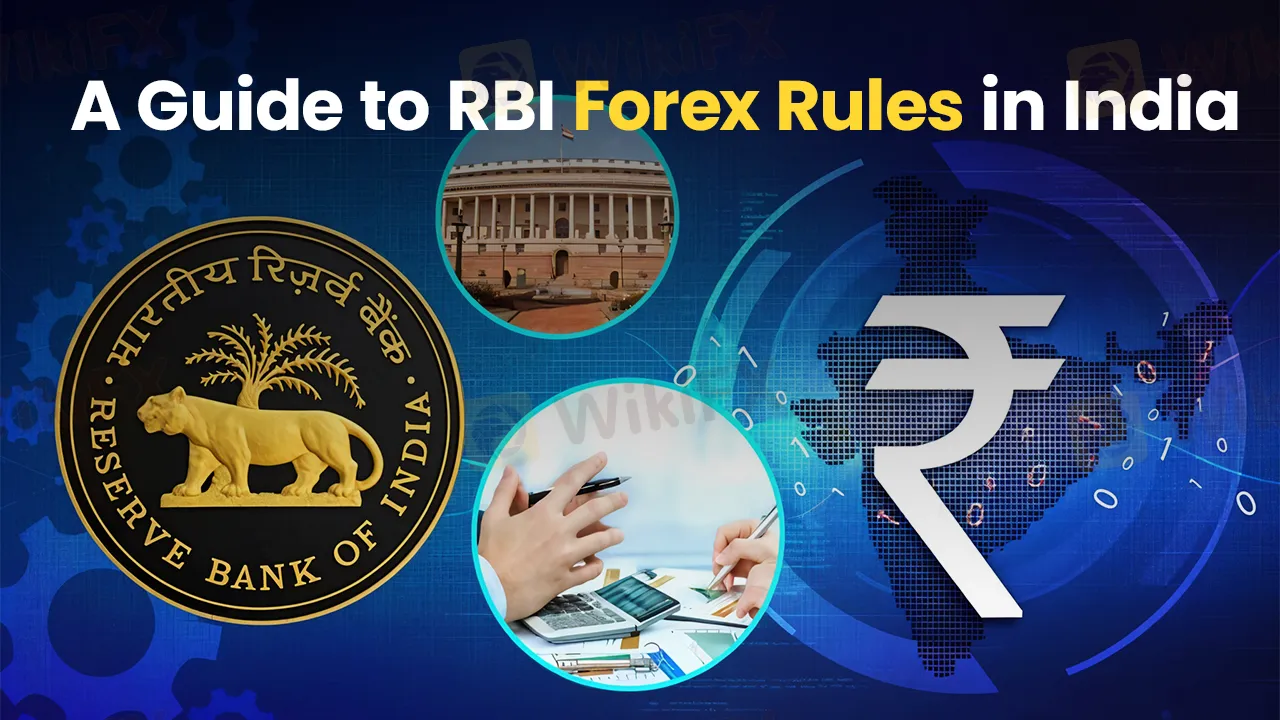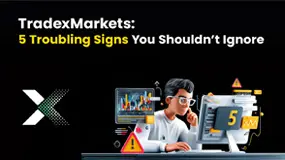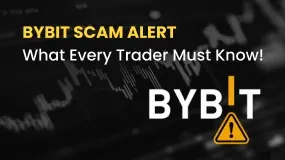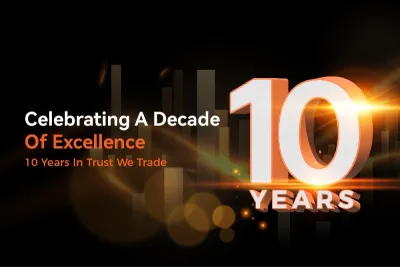简体中文
繁體中文
English
Pусский
日本語
ภาษาไทย
Tiếng Việt
Bahasa Indonesia
Español
हिन्दी
Filippiiniläinen
Français
Deutsch
Português
Türkçe
한국어
العربية
A Guide to RBI Forex Rules in India
Abstract:To ensure transparency, the Reserve Bank of India (RBI), which regulates the country’s foreign exchange market, places certain rules on buying and selling currencies and other transactions.

Indias foreign exchange market is $60 billion strong and counting. The growing participation from retail and institutional traders, brokers, investment funds, banks, and commercial enterprises resulted in almost doubling the market size over four years from 2020 to 2024.
While that‘s remarkable, there are cases of scams that somewhat dampen investors’ confidence. To ensure transparency, the Reserve Bank of India (RBI), which regulates the countrys foreign exchange market, places certain rules on buying and selling currencies and other transactions.
So, if you are new to Indias foreign exchange market, you should be aware of RBI forex rules.
Lets first check the need for foreign currencies before looking at the rules.
The Need for Foreign Currencies
You need foreign currencies when making international transfers or traveling overseas. The RBI governs forex transactions in accordance with the Foreign Exchange Management Act (FEMA) regulations.
Who are Authorized Dealers as Per RBI Forex Rules?
Its important to engage in forex trading through authorized dealers only. The RBI, on its website, has mentioned both authorized and unauthorized forex brokers. Trading through authorized brokers can prevent you from unwanted forex scams.
Also, if you want to invest in currency derivatives such as futures and options, you can do it on domestic stock exchanges such as the Bombay Stock Exchange (BSE), the National Stock Exchange (NSE), the Metropolitan Exchange of India (MSE), or the Securities Exchange Board of India (SEBI)-approved brokers.
RBI Forex Rules for Outward Remittance
Outward remittances mean transferring funds by resident Indians to recipients in another country to meet various needs such as travel, education, or medical expenses overseas. This type of remittance must meet the guidelines mentioned under the Liberalized Remittance Scheme (LRS).
The LRS rules stipulate that resident Indians can transfer a maximum of US$ 25,000 in a calendar year for permissible capital or current account transactions or both.
According to RBI forex rules for outward remittance, the central bank has approved AD Banks (Authorized Dealer -1) and Money Changers with AD-II category license (Authorized Dealer - II) to facilitate fund transfers overseas.
The RBI guidelines for outward remittance further stipulate fund transfers as per the approved purposes and upon submitting the Know Your Customer (KYC) documents.
Currency Exchange Rules to Follow
- You need to submit the required KYC documents when buying foreign currencies.
- Forex purchases may be allowed only up to 60 days before the travel date mentioned on the air ticket.
- You can purchase foreign exchange of up to US$ 25,000 or its equivalent in any currency. You can buy cash up to US$ 2,000 out of this amount and have the remaining balance on a Forex card or through travelers' cheques for the trip.
- As per RBI forex rules, total cash or online payments must not exceed INR 50,000.
RBI Forex Rules on Selling Foreign Currencies
Following these rules makes you eligible to sell foreign currencies.
- Submitting the KYC documents is a must for selling foreign currencies. As per the forex rules, you need to surrender the unspent forex amount in cash and travellers cheques within 180 days of your return to India. Further, you can keep forex up to US$ 2,000 only or its equivalent in other currencies, in travelers' cheques or foreign currency notes.
- RBI forex rules allow you to bring back any forex amount to India. However, if you possess currency notes exceeding US$ 5,000, or travelers' cheques or currency notes above US$ 10,000, you need to declare these in a Currency Declaration Form (CDF).
- If you get an amount below INR 50,000 on selling the foreign currency, the money changer or bank can make cash, cheque or online transfers to your bank account using the National Electronic Funds Transfer (NEFT). In case you receive an amount exceeding INR 50,000, you can get it via Real Time Gross Settlement (RTGS) or NEFT.
Frequently Asked Questions (FAQs)
Can resident Individuals undertake forex transactions?
Yes, resident individuals can undertake foreign exchange transactions as per the RBI forex rules. However, the RBI allows this with authorized persons and for approved purposes in line with the FEMA regulations.
Who are authorized individuals?
Authorized individuals are the entities allowed by the RBI to deal in foreign currencies. They can be a money changer, authorized dealer, offshore banking unit, or any other individual registered under Sub-Section (1) of Section 10 of FEMA.
Can resident individuals undertake forex transactions via the Internet or electronic trading portals?
Yes, they can, but only on electronic trading platforms (ETPs) authorized by the RBI for this purpose. You can also do this on recognized stock exchanges such as the BSE, NSE, and MSEI.
Can I check the list of authorized and unauthorized forex dealers on the RBI‘s website?
Yes, you can check the list of both authorized and unauthorized forex dealers on the RBI’s website.
Disclaimer:
The views in this article only represent the author's personal views, and do not constitute investment advice on this platform. This platform does not guarantee the accuracy, completeness and timeliness of the information in the article, and will not be liable for any loss caused by the use of or reliance on the information in the article.
Read more

TradexMarkets: 5 Troubling Signs You Shouldn’t Ignore
Stop! Read this article if you're thinking about using TradexMarkets. There are several warning signs that suggest this broker may not be safe. Check out this article to find out why. Be safe.

Thinking of Investing in TD Ameritrade? Here’s What May Shock You
Experienced both highs and lows with TD Ameritrade in terms of trading experience and customer support? You’re not alone! From humble beginnings to losses and poor experiences, TD Ameritrade has turned out to be a shocking surprise for traders trusting it for wealth creation. The fraudulent broker has moved into the bad books of traders, quickly erasing pleasant memories they had at the beginning. Read on to learn more about it.

Bybit Scam Alert: What Every Trader Must Know!
The cryptocurrency trend is still growing and isn’t going away. More people are investing every day, hoping to profit from this fast-moving market. But opportunity comes with risk. If you want to start trading, make sure you choose a broker that is safe, licensed, and transparent. Remember, if you fall for the Scam brokers like Bybit, they could steal your money. Learn why Bybit is not a safe choice before you invest.

WeTrade Marks 10th Anniversary with Global Campaign, Upgrades and Rewards
The leading financial broker celebrates a decade of excellence with worldwide screen takeovers viewed by millions
WikiFX Broker
Latest News
Beware of Fake RS Finance: How to Spot Scams
Fortune Wave Solution: SEC Warns of Investment Scam
D. Boral Capital agrees to a fine as a settlement with FINRA
Is TD Ameritrade Safe? How to Spot Fake URLs and Stay Protected
Engineer Loses RM230,000 in “Elite Group” Investment Scam
Is Learning Forex Trading Online a Good Idea? Pros and Cons Explained
TradexMarkets: 5 Troubling Signs You Shouldn’t Ignore
A Guide to Buy Stop vs Buy Limit in Forex Trading
SEC Implements New Rules for Crypto-Asset Service Providers
Telegram vs WhatsApp vs Discord: Which Platform Is Best for Forex Signals?
Currency Calculator


